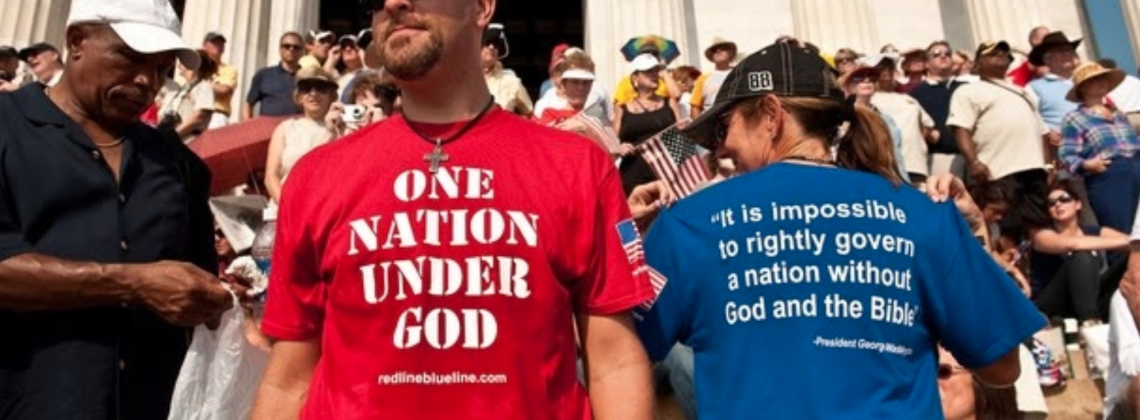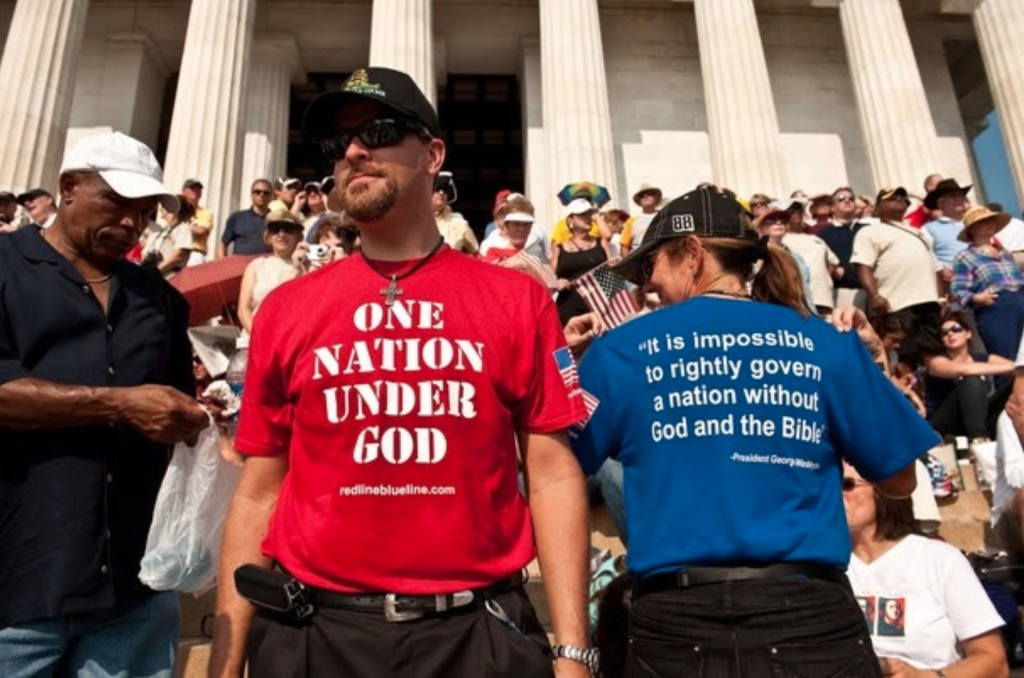

It’s not simply a question of taste
Recently there have been some interesting wrinkles in the conversation on Christian nationalism. First, there was consternation around the fact that the final report by the House January 6th committee barely made mention of Christian nationalism. This has been attributed to the influence of committee member and former Republican representative Liz Cheney. Cheney reportedly believes that America’s founding documents are divinely inspired, which makes her a bona fide Christian nationalist according to prominent sociologists. Yet few have been more vocal in their opposition to the January 6th uprising or paid a higher political price for that opposition.
Second, Pew Research Center released a report showing that Americans are evenly divided on whether or not the United States should be a Christian nation. When asked what exactly being a Christian nation means, however, those in favor tend to say it is about people being generally guided by Christian values, while those opposed largely tie it to explicit Christian governance or negative attributes like racism and authoritarianism. Around 30% on both sides simply don’t know. In other words, not only do people disagree on the answer to the question, they don’t even agree on its meaning.
These examples highlight a larger tension in conversations about Christian nationalism. Sometimes it is discussed as a coherent ideology. At other times it is described as a loosely defined framework that can be adapted to suit different ends. These two versions are often treated as interchangeable, but they have importantly different implications for how we should understand Christian nationalism.
To illustrate these differences, I propose an analogy: One account views Christian nationalism as an ideological stew, while another sees it more as a cultural seasoning.
Considered as stew, Christian nationalism is a noxious blend of radical right-wing views, uniting white supremacy, patriarchy, and other phenomena poisonous to our body politic. Each of these is a problem on its own, but the “Christian nation myth” is the key ingredient that brings them together by providing a common religious language that sanctifies authoritarian exclusion. It grants people on the radical right permission to pursue pernicious ends, through destructive means, in the name of taking America back for God.
Think of it this way: You can have a beef stew without carrots or potatoes, but not without beef. Stewing the beef is what makes the other ingredients go so well together. By the same token, Christian nationalism binds the other elements of right-wing extremism into a coherent whole. That whole may manifest as anti-abortion activism, support for the NRA, or storming the Capitol building, but what lies at the root of it all is the desire to establish America as a Christian nation.
By contrast, when considered as seasoning, Christian nationalism can become flexible in meaning, depending on how one defines “Christian” and “nation.” “Christian” can refer to the exclusive saving power of Jesus Christ or the moral imperative to help the poor. “Nation” can mean something broadly characteristic of the national population (Christianity as the majority religion) or something explicitly promoted by the state (Christianity as the state-enforced religion). When the idea of the United States as a “Christian nation” does not, in itself, mean something specific, it is easy to come up with a quote from the Bible or a theological rationale to argue for a properly “Christian nation” that should either go to war or make peace, either promote or prohibit same-sex marriage, and so on. People can “use” the Christian nation idea for many different purposes without ever committing to a clear explanation of the idea itself.
In this way, Christian nationalism is like garlic. Garlic is a versatile seasoning. A lot of recipes wouldn’t taste the same without it. But rarely would someone describe garlic as the main ingredient for any given dish. Furthermore, it can be used in different recipes to produce very different results: pasta carbonara does not taste the same as Mongolian beef, but they both rely on garlic. Similarly, the belief in America as a Christian nation can be used to support diverse political views without being central to any of them.
Over the course of American history, people have invoked the “Christian nation” idea in many different ways. To the Puritans, it meant establishing a covenant with God to bring about Christ’s millennial kingdom. In the Revolutionary era, it expressed divine sanction for the struggle against George III and for English-style liberalism. In the Civil War era, both the Union and the Confederacy saw themselves as fighting to establish a Christian nation. As Lincoln famously intoned, “Both [sides] read the same Bible and pray to the same God, and each invokes His aid against the other.” Christians who fought for social policies they believed reflected God’s will were found on different sides of the Civil Rights movement. Other examples abound. In fact, one reason we are even arguing about Christian nationalism today is because, until very recently, Christian religious assumptions permeated society so thoroughly that for most people, “Should America be a Christian nation?” wouldn’t even register as a very meaningful question.
Today, Christian nationalism is often discussed as if it were a stew. But there are good reasons to think of it as a seasoning. Social scientists have shown that a common (though contested) survey measure of Christian nationalism is correlated with myriad conservative attitudes, and thus conclude that it amounts to a coherent and toxic ideology. But this is misleading. The fact that Christian nationalism overlaps with, say, both racial prejudice and support for religious freedom doesn’t have to mean it is uniting those views. It just means different people are invoking the “Christian nation” idea in different ways. Because the political left is increasingly walking away from religion, it is not surprising that “Christian nation” rhetoric resonates more on the right. But the political right is a diverse space marked by often conflicting goals and motivations. Figures as different as Paul Miller and Eric Metaxas may endorse some version of a Christian nation, but their versions are fundamentally at odds. Rather than issuing blanket condemnations of a nebulous “Christian nationalism,” our efforts are better spent trying to understand how different people are using the idea and why.
Furthermore, as a stew, Christian nationalism is easily employed as a political slur, causing many Christians to feel branded by the label despite rejecting the racist and authoritarian impulses attributed to it. As a recent piece from NiemanLab warns, “This [makes] them less likely to publicly ally themselves with pro-democracy forces, since those forces have, in their minds, falsely implicated their beliefs and communities in something they find abhorrent.” Treating Christian nationalism as a toxic stew produces polarization where consensus is possible. The more difficult but fruitful strategy is to examine the different uses of Christian nationalism as a seasoning, figure out when and why it takes more toxic or healthy forms, and try to promote the healthy ones. What is it that separates ostensible Christian nationalists Marjorie Taylor Greene and Liz Cheney? The answer to that question may provide the path to a healthier conversation around American religion and politics.
Jesse Smith is an incoming professor of sociology at Benedictine College. His research is focused on the intersection of family, religion, and politics in the modern United States.